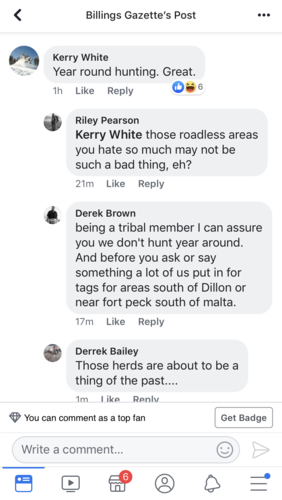idahohuntr
Well-known member
- Joined
- Dec 19, 2013
- Messages
- 344
The feds are working this out...they signed a treaty, treaties are the supreme law of the land, and Wyoming took actions in violation of the treaty...so the feds intervened to straighten out the mess Wy created. You keep saying there's this 'problem', but it seems to be your inability to acknowledge or understand tribal treaty rights.The people who entered into the treaty should be the ones working this out. Their treaty , their land, their problem. Not a difficult concept to wrap your mind around.
Do you really think it makes sense for Wyoming to do this again and expect a different outcome?
What's absolutely weird about this is the feds taking the side of the tribes and taking no responsibility for their participation in the treaty or in enforcing laws on their property with their own LEO's.






